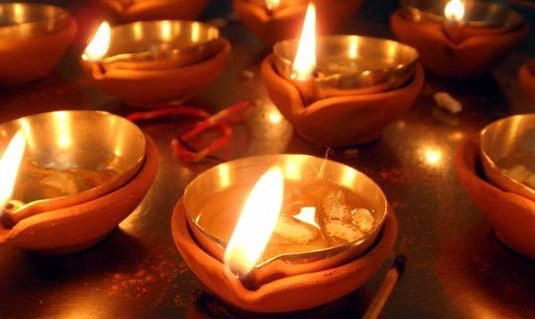The festival of lights, Diwali is largely considered as the biggest festival in India. While the celebrations are traditionally associated with exchanging sweets and gifts, decorations, and bursting crackers, these celebrations underwent a great deal of modifications this year, in the light of the increased pollution levels around the festival.
Abstaining from crackers
Bursting crackers forms the crux of Diwali celebrations in India, as well as across the globe. Children often equate Diwali with the colourful sparklers and sky shots. However, what is often overlooked is the environmental and health hazard these crackers pose.
With the Supreme Court banning most crackers, and the smog experienced by the residents of Delhi NCR after Diwali over the years, has led to more awareness in this regard. This year, a large number of people has voluntarily abstained from bursting crackers.
Malvika, a resident of Delhi, said, “Every year, the smog used to choke the life out of Delhiites. My mother is an asthma patient, and she had a severe attack two years ago because of all the pollution. However, this year, the situation is somewhat better. I’m glad to see people are understanding that there is more to Diwali than anaar, fuljhadi,and chakri.”
Purchasing electric vehicles
New clothes, new jewellery, new vehicles – big purchases are an inseparable component of Diwali celebrations. While buying the latest car or bike model has been a fad over the years, people are now becoming increasingly aware of the damage caused by the fumes coming from the diesel and petrol-run vehicles.
Bringing tradition and environmental conservation together, Rituraj, a resident of Lucknow, came up with an entirely new tradition – that of buying an electric vehicle instead of diesel or petrol variants. Sharing his experience, Rituraj said, “My sister was looking for a two-wheeler for her daily commute. I decided to gift her one on the occasion of BhaiyaDooj.”
He added, “At first I thought of getting an Activa or Jupiter, but after some research I found that an e-vehicle would be far more economic and eco-friendly. I read about Sahara India Pariwar founder Subrata Roy launching Sahara EVOLS e-bikes in Lucknow, so I went on to book one for my sister.”
Plastic-free decorations
The festival of lights is incomplete without bespoke décor. Despite the durability of plastic decorations, this year witnessed an increase in organic decorations. Lalit, a gift shop owner from Mumbai who also deals in festive décor, revealed, “This year we had more buyers asking for organic rangoli colours, and decoration items made of cloth and paper.”
Lalit added, “People are becoming more and more environment conscious, which is a good thing. Also, there is a surge in people rejecting Chinese items and opting for things ‘Made in India’. All this has promoted indigenous trade this (festive) season.”


